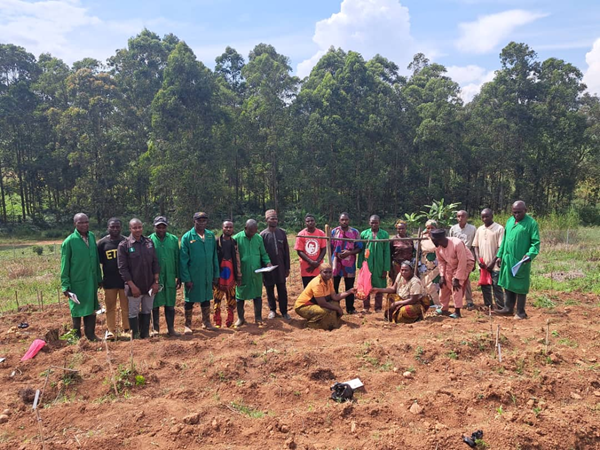
The genetically modified (GM) potato project, presently underway in Nigeria, has completed its first-year multi-locational confined trial in three different areas, showcasing remarkable yield advantages of the biotech potatoes over conventional varieties grown in the country.
Preliminary findings from the trials conducted in Kuru and Bokkos areas of Plateau State and Kusuku in Taraba State indicate that the biotech potatoes exhibited a uniform yield advantage of over 300 per cent compared to the best-performing conventional variety in the country, especially when no fungicide was applied.
This initiative falls under the Feed the Future Global Biotech Potato Partnership (GBPP), a five-year project led by Michigan State University. It primarily focuses on commercialising late blight disease-resistant potatoes in farmer-preferred varieties across Bangladesh, Indonesia, Kenya and Nigeria. The project also involves key partners such as the African Agricultural Technology Foundation (AATF) and the International Centre for Potatoes.
In Nigeria, the project is executed by the National Root Crop Research Institute (NRCRI), Umudike, Abia State.
The GBPP principal investigator, Dr. Charles Amadi expressed excitement about the promising results. He highlighted that biotech potatoes could significantly contribute to mitigating the devastation caused by recurrent late blight outbreaks in Nigeria’s potato-growing regions, leading to increased yields and securing farmers’ investments and livelihoods along the potato value chain.
The GBPP trial manager, Dr. Shuaibu Kahya emphasised the destructive nature of late blight, affecting both potato foliage in the field and tubers in storage, resulting in a complete crop loss. He pointed out that potato farmers in areas like Jos (Plateau), Obudu (Cross River) and Mambila Plateau (Taraba) have grappled with late blight disease for over 30 years.
In 2021/22, NRCRI scientists evaluated late blight-resistant potatoes, known as biotech potatoes, in confined field trials in Kuru and Bokkos (Plateau) and Kusuku, Mambila Plateau (Taraba). During the first-year multi-locational confined field trial, the control potatoes (non-biotech) experienced 80-100 per cent late blight disease, resulting in significant losses. In contrast, the biotech potatoes exhibited resilience, with 100 per cent of the modified plants showing no late blight symptoms on the foliage. The harvested biotech potatoes showed no difference in tuber size and shape compared to the non-biotech ones.
The benefits of GM potatoes, according to the Trial Manager, include a greater number of tubers, leading to a significant yield advantage, reduced production costs and environmental impact and potential marketability enhancements.
Farmers who participated in the trials praised the modified variety, stating that it outperformed their conventional varieties. They urged the Nigerian government to expedite action on the commercialisation of biotech potatoes to ensure farmers have unrestricted access to its tuber seedlings.
The chairperson, Kusuku Potatoes Farmers Association, Sardauna local government area of Taraba state, Mrs. Rosemary Samson expressed her amazement at the high-yielding and very productive biotech potatoes. She noted the significant difference in yield and resistance to pests and diseases compared to past varieties.
Chairman of potato farmers from Gembu, Genesis Johnson appreciated the resistant variety, emphasising its potential for bumper harvests and reduced reliance on chemical sprays. He appealed to the federal government to make this variety available to farmers, promising increased income and food production.
The Feed the Future Global Biotech Potato Partnership project operates in four countries – Kenya, Bangladesh, Indonesia and Nigeria. Coordinated by Michigan State University, the project involves collaboration with various partners, including the National Root Crop Research Institute, Umudike; the African Agricultural Technology Foundation (AATF) and the International Potato Center (CIP).
Visit www.canr.msu.edu/biotechpp/ for more information.


